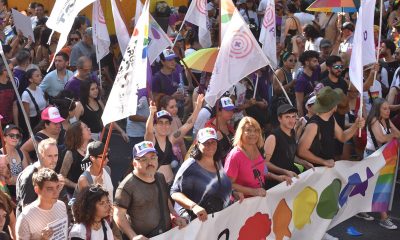South America
Argentina activists raise alarm over far-right primary victory
Javier Milei won Aug. 13 primary, LGBTQ+ candidates also advanced

BUENOS AIRES, Argentina — The results of Argentina’s primary elections on Aug. 13 have exposed a political landscape that combines significant advances in LGBTQ+ and intersex rights with the worrying expansion of the far-right in that country. In an election in which only a few openly queer candidates managed to advance to the general elections on Oct. 22, the LGBTQ+ and intersex community is watching closely the rise of conservative tendencies that could impact their rights.
The results had an unexpected protagonist: Ultra-right wing candidate Javier Milei won the most votes.
With almost 7 million votes — about 30.1 percent of the total cast — the libertarian economist leader of La Libertad Avanza capitalized upon Argentines’ discontent with leftist President Alberto Fernández’s government.
Former Security Minister Patricia Bullrich, who was part of right wing President Mauricio Macri’s government, and her “Together for Change” coalition finished second with 28.3 percent of the votes. Peronism, represented by Finance Minister Sergio Massa and his “Unión por la Patría” ruling coalition, obtained 27.2 percent, which is its worst result since 2011.
Milei’s running mate, Congresswoman Victoria Villarruel, during the campaign spoke against marriage rights for same-sex couples, saying a union between people of the same sex was already “guaranteed with the civil union.” Milei himself also spoke against sexual and gender diversity.
LGBTQ+ candidates
Reina Ibañez became the first Transgender woman presidential candidate in Argentina’s history. She won enough votes to stay in the race.
Ibañez told the Washington Blade she feels like a winner for making history in Argentina.
“It was a triumph to be the first Trans candidate for president of Argentina,” said Ibañez. “This marks a historical fact here in the country.”
For her, “the triumph of the ultra-right here in Argentina I attribute it to the fact that more and more people are buying the discourse of the right and in this case the ultra-right won, which in this case would be Milei with his discourse of anti-politics, anti-caste and it worries that this type of characters have won in Argentina.”
“We will be vigilant and attentive so that they do not take away the rights we have won,” she said.
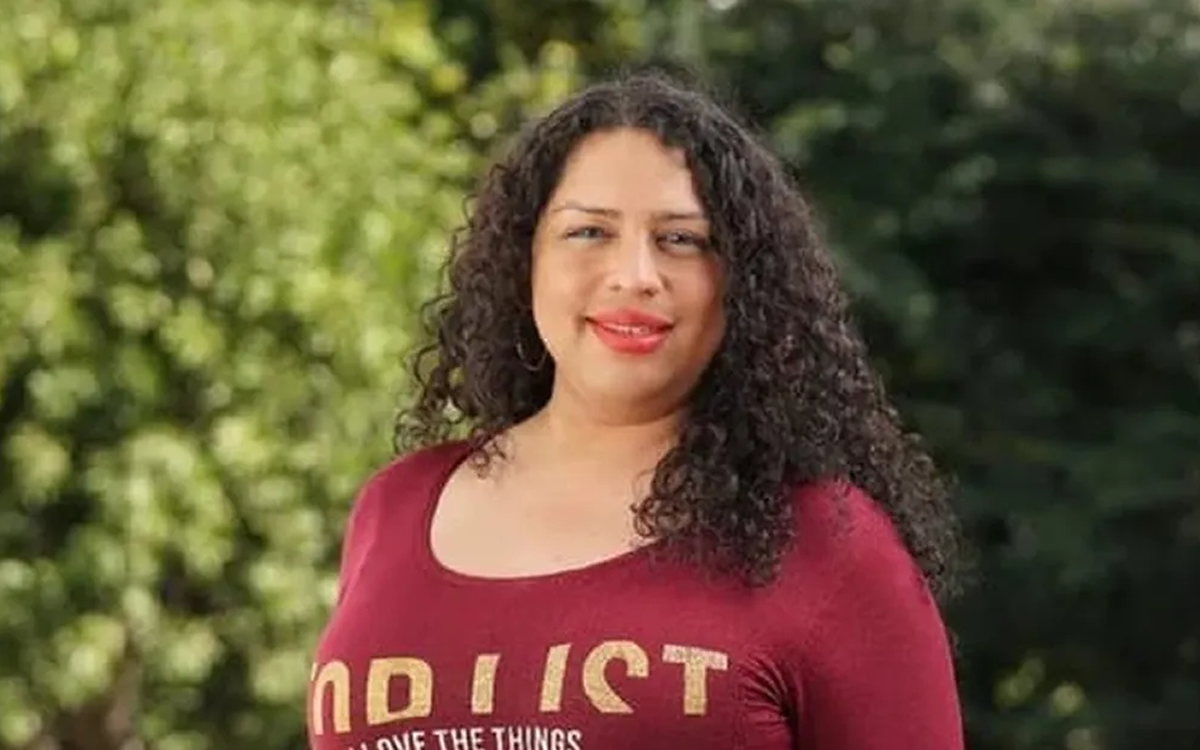
Ibañez added “it is a threat to the LGBT community because Milei said that there is no need for the ministry of gender and women in his campaign. And he is against LGBT people, so if the same result is confirmed in October, it will be a very difficult country for all sectors, not only for the LGBT community.”
Esteban Paulón, a well-known activist, in a historic milestone won enough votes in his race to become a congressman to advance to the general elections.
“We obtained 62,000 votes throughout my province and we need to increase to a little more than double that to manage to fight for the seat on Oct. 22,” Paulón told the Blade.
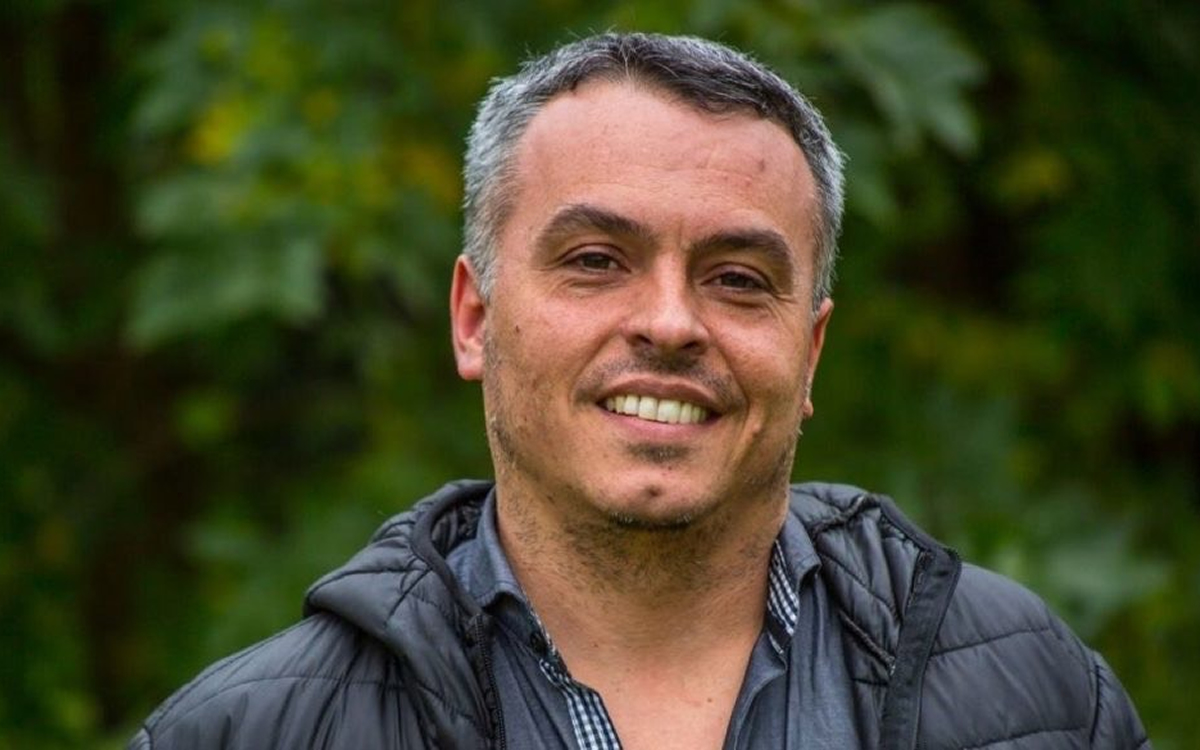
The candidate for the province of Santa Fe in northeastern Argentina explained “we are going to intensify the campaign in the big cities, the tours in the towns and communes of Santa Fe and seek the support of those who, in spite of the national panorama, want to count on a voice that will defend the rights of all in Congress.”
On the other hand, Santiaga D’Ambrosio, a nonbinary candidate of the Popular Left Front, explained to the Blade that they believe “the electoral triumph of the ultra-right in Argentina is an expression, distorted, of punishment vote to the current national government of the Front of All, with a still very fresh memory of what was Mauricio Macri’s government.”
“We must be clear about two things: That the electorate as a whole does not fully and consciously share the program of political-economic subordination to the United States and the cut to basic rights such as health, education and work; and on the other hand, that an electoral victory is not a blank check so that it can implement the whole of its liberal program as we saw in Jujuy winning Morales with a 54 percent of the votes and then having a popular rebellion that was an example of how to face the adjustment,” stressed D’Ambrosio.
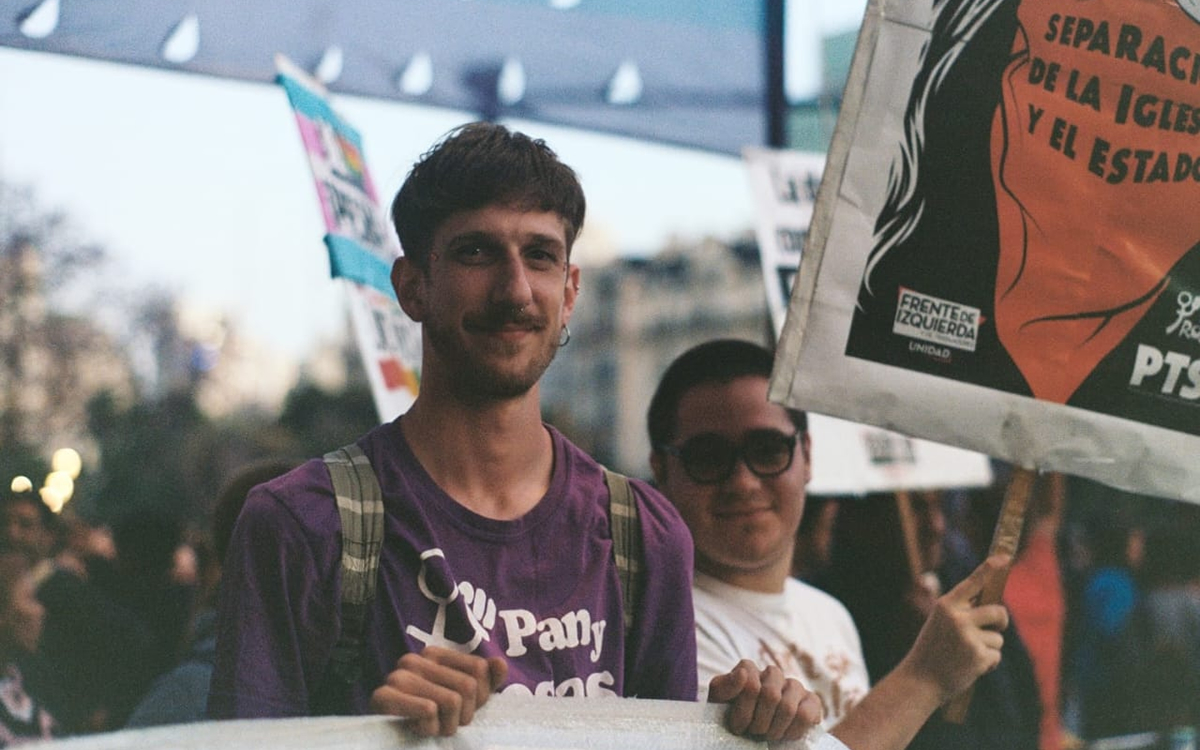
Finally, they indicated that “it must be emphasized that this is not an ideological vote, but one identified with anger towards the political caste and the great economic problems of the country, without ever talking about the role played by businessmen and that caste of which he is a part.”
Far right’s rise a challenge for LGBTQ+ rights
The primary election has highlighted the rise of far-right tendencies in Argentina, which has raised concerns within the LGBTQ+ and intersex community. With parties and candidates seeking to curtail LGBTQ+ and intersex rights and speaking out against sexual diversity, many activists fear the gains they have made in recent years could be at risk.
Among the group that supports Milei there are recognized anti-rights militants, deniers of the dictatorship and climate change, and anti-LGBT+ rights, which they have characterized as privileged,” said Paulón.
The candidate added “in this sense Milei’s electoral rise implies a concrete risk for queer people, both because of the possibility of regression in terms of rights, Milei’s vice presidential candidate has proposed to repeal equal marriage and sanction a different civil union for queer couples. At the same time she is a militant against comprehensive sex education and the alleged gender ideology.”
LGBTQ+ and intersex activists are in an effort to mobilize voters and raise awareness about the importance of maintaining and strengthening the gains made in equal rights and acceptance of diversity. The general election is shaping up to be an opportunity for Argentine citizens to take a clear position on the political and social direction the country will take in the coming years.
Flavia Massenzio, president of the LGBT+ Federation of Argentina, the most important queer organization in that country, told the Blade that “it is a very worrying result for the right wing in Argentina.”
“The truth is that both the equal marriage law, the gender identity law, as well as many advances that Argentina had, may be at risk with the advances of these candidates if they are actually elected,” lamented Massenzio.
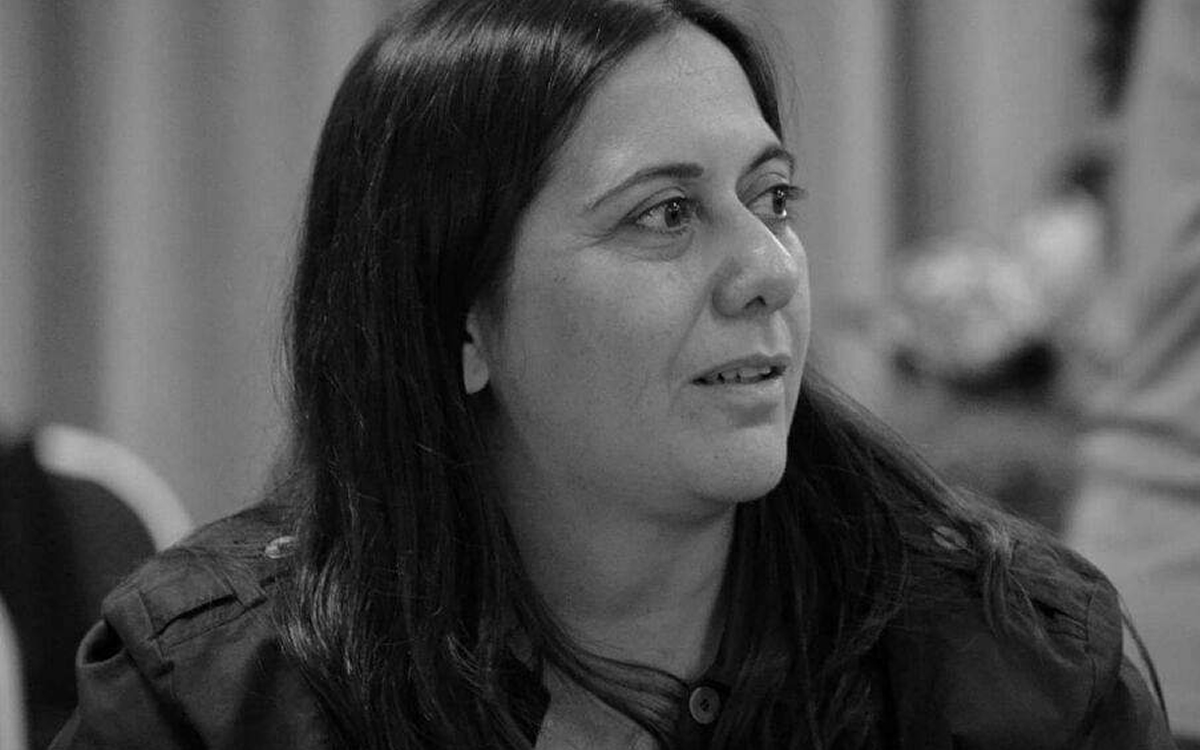
Chile
2024 was ‘year of regression’ for LGBTQ+ rights in Chile
Advocacy group blamed rise in ultra-right, government inaction

A report that a Chilean advocacy group released on Tuesday says 2024 was a “year of regression” for LGBTQ+ rights.
The Movement for Homosexual Integration and Liberation (Movilh)’s 23rd Sexual and Gender Diversity Human Rights report notes LGBTQ+ rights for the first time since democracy returned to Chile in 1990 not only stopped advancing, but saw significant rollbacks in the three branches of government.
The Movilh report describes 2024 as “the year of regression,” noting 23.5 percent of human rights violations against LGBTQ+ people over the last two decades occurred last year. A total of 2,847 discrimination complaints were reported in 2024, representing a 78.7 percent increase over the previous year.
The report documents two murders, 44 physical or verbal assaults, two incidents of violence in police stations, 89 reports of abuse in the workplace, and 65 incidents in educational institutions in 2024. The transgender community was particularly affected, with a 462.6 percent increase in discrimination cases compared to 2023.
The Movilh report notes the growing influence of the ultra-right, whose narratives have fostered hate speech, is one of the main factors behind the deterioration of LGBTQ+ rights in Chile. The advocacy group also criticizes authorities who have remained silent in the face of these attacks, even though they say they support the LGBTQ+ community.
The report specifically singles out the Executive Branch.
Movilh specifically highlights the prohibition of public funds for hormone treatments for trans minors and the postponement of these procedures in public hospitals. The government reversed course after intense pressure and judicial appeals.
The report also criticizes the judiciary.
The Oral Criminal Trial Court of San Antonio refused to classify the murder of a trans woman as a femicide, arguing her identity card still reflected the gender assigned to her at birth. The Court of Appeals of Santiago also ordered the removal of a homophobia complaint on social media, setting what NGOs have described as a dangerous freedom of speech precedent.

The report notes Valparaíso, Metropolitana, and Biobío are the three regions with the highest number of discrimination complaints, with 51.3 percent, 25.1 percent, and 5.8 percent respectively. Reported cases increased in 11 of Chile’s 16 regions, with Ñuble leading the way with a 300 percent increase.
Faced with this bleak panorama, advocacy groups have intensified their efforts to denounce the violence and demand LGBTQ+ rights are once again guaranteed. Movilh, along with other organizations, have approached the Inter-American Commission on Human Rights and the U.N. about the situation in Chile.
“We are seeing a reversal of rights that cost decades of struggle,” warns the report. “If the State does not act urgently, we run the risk of discrimination and violence becoming institutionalized.”
Argentina
Millions march against Javier Milei in Argentina
Protests took place after president’s comments at World Economic Forum

Millions of people in Buenos Aires and across Argentina participated in marches against President Javier Milei in response to his controversial comments at the World Economic Forum in Davos, Switzerland.
The Buenos Aires march, led by LGBTQ+, women’s and human rights organizations in Argentina, shaped up to be one of the largest demonstrations against Milei since he became president in December 2023. The mobilization is a direct response to Milei’s disparaging comments about feminism, LGBTQ+ rights, and other progressive movements.
Milei called “wokism” and “gender ideology” harmful during his Jan. 23 speech at the World Economic Forum, even comparing them to pedophilia. These statements sparked outrage across Argentina with protesters demanding the defense of human rights and equality.
María Rachid, president of the Argentine LGBT+ Federation, told the Los Angeles Blade on Sunday “the march was massive, a strong message to President Milei putting a limit to hatred, discrimination and violence.”
“Argentine society built the values of respect for diversity, equality, and true freedom and yesterday it came out to defend them with massive demonstrations throughout the country and in many cities around the world,” said Rachid. “We are proud of what we were able to build because although they want to destroy it, it is already part of the heart of Argentine society.”
The Buenos Aires march began at the National Congress and ended at the Casa Rosada, the seat of the country’s presidency. Thousands of demonstrators, many with rainbow flags and banners that read “rights are not negotiable,” expressed their strong rejection of Milei’s policies.
Gay Congressman Esteban Paulón highlighted to the Blade “the call for the march was impressive.”
“I think it exceeded any forecast, not only because of the massiveness in the City of Buenos Aires, where it is estimated more than a million people, but also because of the massiveness in the 150 cities in which it was held throughout the country,” he said. “The truth is that it was a very, very big march in Rosario, in Córdoba, in Santa Fe, in Mar del Plata, in Bariloche, in the north, in Salta.”
“There was no expectation that it would be so, so massive, beyond the one in Buenos Aires, which had had an important call, an important visibility, which had added several actors,” added Paulón.

Sofía Díaz, a transgender woman who worked as a civil servant before Milei’s administration fired her, marched in Corrientes, a city in Chaco province.
“After President Milei’s speeches in Davos, the next day we started texting each other on WhatsApp,” she said, referring to public employees at the national level. “We were really afraid of what he had said.”
Activists around the world expressed solidarity with their Argentine counterparts.
Marches took place in cities around the world — including in Santiago, Chile; Montevideo, Uruguay; Rio de Janeiro; São Paulo; Mexico City; London; Madrid; Amsterdam; Berlin; Geneva; Paris; New York; Lisbon, Portugal; and the Spanish cities of Barcelona and Granada.
The Movement for Homosexual Integration and Liberation, a Chilean LGBTQ+ rights group, on Feb. 1 organized a march to the Argentine Embassy. Activists delivered a letter that expressed solidarity with the LGBTQ+ community and repudiated Milei’s policies against it.
Argentina
Gay Argentine congressman files criminal complaint against Javier Milei
President made anti-LGBTQ+ comments during World Economic Forum speech

Argentine President Javier Milei is facing a new controversy after he made a series of homophobic and transphobic comments at the World Economic Forum in Davos, Switzerland.
Congressman Esteban Paulón, a long-time LGBTQ+ rights activist, in a criminal complaint he filed argues the president used discourse that promotes negative stereotypes, and encourages violence against the LGBTQ+ community.
Milei in his Jan. 23 speech made statements that linked the LGBTQ+ community to pedophilia, specifically citing the case of a gay couple in Georgia sentenced to life in prison last year after they pleaded guilty to sexually abusing their two adopted children. Milei also claimed 5-year-old children undergo gender-affirming surgeries, an argument that experts have categorically denied.
These statements sparked national and international outrage.
“Milei radicalizes hate speech based on lies and fabricated truths,” said Paulón in an exclusive interview with the Los Angeles Blade. “He raises harmful stereotypes against the LGBTQ+ community, which generates fear and anguish in our communities. We have filed a criminal complaint, understanding that his statements constitute several crimes aggravated by his presidential investiture.”
Paulón also highlighted the societal impact of Milei’s words, noting many LGBTQ+ families live in fear of having their rights revoked.
“There are fathers and mothers afraid of being denounced for allowing their children to express their gender identity. LGBTQ+ couples fear that their children will be taken away from them,” said Paulón. “This type of discourse activates ultra-conservative groups that politically support Milei, but do not reflect the feelings of the majority of Argentine society.”
LGBTQ+ activists and human rights groups in Argentina have organized a march in Buenos Aires, the country’s capital, that is scheduled to take place on Feb. 1. The event’s slogan, “for a country without hate,” seeks to highlight their rejection of Milei’s statements and a reaffirmation of their commitment to defend LGBTQ+ rights.
Milei, for his part, denied the accusations in a recent interview, pointing out they are part of a campaign that so-called elites have orchestrated.
“I never compared homosexuals with pedophiles, but certain sectors mount these campaigns to generate indignation,” he said.
Paulón stressed his complaint also seeks to have a broader impact on Argentine society.
“Beyond the judicial outcome, we want to open a space for reflection on the importance of not validating hate speech,” he said. “These attacks not only affect a community, but also damage social cohesion and mutual respect.”
Milei has rolled back several LGBTQ+ rights initiatives since he took office in December 2023.
One of his administration’s first acts was to close the Women, Gender and Diversity Ministry and the National Institute Against Discrimination, Xenophobia and Racism, which was known by the acronym INADI. Milei has also dismissed transgender people from public sector jobs.
Argentina
Javier Milei rolls back LGBTQ+ rights in Argentina during first year in office
Gay congressman, activists lead resistance against president

Javier Milei’s rise to power marked a sea change in Argentine politics that profoundly impacted the country’s LGBTQ+ community.
His first year in office has seen a combination of hostile rhetoric and concrete measures that have dismantled historic advances in human rights.
“Javier Milei’s administration is fighting a two-way battle,” Congressman Esteban Paulón, a long-time LGBTQ+ activist, pointed out to the Washington Blade. “On the one hand, symbolically, with an openly homo, lesbo and transodiant discourse, and on the other, in concrete facts, such as the closure of the Ministry of Women, Gender and Diversity, and INADI (the National Institute Against Discrimination, Xenophobia and Racism).”
The decision to eliminate these key institutions sent a clear message: Diversity policies are no longer a state priority. This dismantling left LGBTQ+ Argentines without national advocacy tools.
Some provinces have tried to fill this void, but many others have followed the national government’s lead. This trend, according to Paulón and other activists, has left LGBTQ+ Argentines even more vulnerable.
“What we are seeing is not only a setback in public policies, but also a direct attack on the dignity of thousands of people who, until recently, felt the support of the state,” said Paulón.
One of Milei administration’s first acts was to close the Women, Gender and Diversity Ministry and INADI. These decisions, which Milei said was necessary to reduce “unnecessary public spending,” eliminated agencies that played an essential role in the promotion of human rights and the fight against discrimination.
“Without these institutions, the LGBTQ community has been left unprotected against violence and prejudice. Now, discrimination cases that used to be handled by INADI end up shelved or without follow-up,” Paulón warned. “The message this sends is that our lives don’t matter to this government.”
Paulón and other activists say one of the Milei government’s most alarming decisions is to allow employers to fire employees without legal consequences.
“Today, a person can be fired because of their sexual orientation or gender identity, without the possibility of recovering their job,” warned Paulón.
The new policy has left many employees — especially transgender people — without legal recourse. Advocacy groups say companies have taken advantage of this regulation to carry out selective firings. The freezing of a trans-specific labor quota has deepened employment discrepancies for one of the country’s most vulnerable communities.
Paulón told the Blade that anti-LGBTQ+ rhetoric from Milei and several of his ministers has also had an effect on Argentine society.
“Today, anyone feels they can say anything without consequences,” said Paulón, who noted that ultraconservative and religious sectors view Milei’s government as an ally.
This rhetoric, according to Paulón, has yet to translate into widespread violence.
“We are not yet in a situation of systematic violence as in other countries, but the risk is there,” he said. “Every word of hate from power legitimizes violent actions.”
Congress, civil society leads resistance
In the face of this adverse scenario, resistance has taken various forms.
Paulón and other opposition lawmakers have worked on bills to protect LGBTQ+ rights and reverse regressive measures.
“We will not stand idly by. We put forward concrete proposals to guarantee access to health care, inclusive education and labor protections,” said Paulón.
Activists have strengthened alliances with their counterparts in neighboring countries, such as Brazil and Chile, and Mexico. They are also working with international organizations that have expressed concern about the situation in Argentina.
Although the outlook is bleak, Paulón said he remains hopeful.
“Milei is going to pass, like all processes in democracy,” he said.
Paulón stressed that marriage equality and the transgender rights law are deeply rooted in Argentine society, and act as barriers to stop further setbacks. The challenge now, he says, is to maintain resistance, organize the community, and strengthen international ties.
“We have an organized movement, tools to defend ourselves and a mostly plural and diverse society. This process will also come to an end,” said Paulón. “In this context, the struggle for LGBTQ rights in Argentina is a reminder that social conquests are never definitive and that resistance is vital to preserve the achievements made.”
Colombia
Claudia López mum on whether she will run for president of Colombia
LGBTQ+ Victory Institute honored former Bogotá mayor in D.C.

Former Bogotá Mayor Claudia López did not specifically discuss the growing speculation over whether she will run for president of Colombia in 2026 when she spoke at Saturday’s LGBTQ+ Victory Institute’s Annual International LGBTQ Leaders Conference in D.C., or with the Washington Blade.
“In a week I am going to return to Colombia and I’m coming back with a very, very punctual task,” she said in a speech she gave after the Victory Institute inducted her into its LGBTQ+ Political Hall of Fame at the JW Marriott. “Democracy in the world in general needs emotional reconnection.”
López, 54, was a student protest movement leader, journalist, and political scientist before she entered politics.
She returned to Colombia in 2013 after she earned her Ph.D in political science at Columbia University.
In her speech, López said Juan Francisco “Kiko” Gomez, a former governor of La Guajíra Department in northern Colombia, threatened to assassinate her because she wrote about his ties to criminal gangs. A Bogotá judge in 2017 convicted Gómez of ordering members of a paramilitary group to kill former Barrancas Mayor Yandra Brito, her husband and bodyguard, sentencing him to 55 years in prison.
López in 2014 returned to Colombia and ran for the country’s Senate as a member of the center-left Green Alliance party after she recovered from breast cancer. López won after a 10-week campaign that cost $80,000.
“I was the only woman, the only LGBTQ member of my caucus,” she said in her speech. “Of course I had the honor, but also the responsibility to represent them particularly well, [and] of course all the citizens who trust me and all the citizens of Colombia.”
“Once you are elected, you are elected to represent equally and faithfully all of the people, not only your own people,” added López.
In 2018, López was her party’s candidate to succeed then-President Juan Manuel Santos when he left office. López in 2019 became the first woman and first lesbian elected mayor of Bogotá, the Colombian capital and the country’s largest city.
“This of course speaks incredibly well of my city,” she said in her speech.
López took office on Jan. 1, 2020, less than a month after she married her wife, Colombian Sen. Angélica Lozano. (López was not out when she was elected to the Senate.) Lozano was with López at the Victory Institute conference.
López’s term ended on Dec. 31, 2023. She will return to Colombia once her Advanced Leadership Fellowship at Harvard University ends this month.
“I ended my mayorship,” López told the Blade. “It has been, of course, the honor of my life to be the first female mayor of my city. It was an absolutely beautiful job, but very challenging.”
“I needed a year of rest, of relaxation, and I was fortunate to receive a Harvard scholarship this year,” she added.
López during the interview called for an end to polarization and reiterated her support for democracy.
“We need to listen to each other again, we need to have a coffee with each other again, we need to touch each other’s skin,” she said.
López said parties, candidates, and their political coalitions in Colombia and around the world need to “listen, reconnect, and organize with people” at the grassroots level. López also told the Blade there is a “global crisis of democracy.”
“Each country has its own contexts and challenges, but it seems to me that there is a common element there,” she said.
“So, I return to Colombia rested, grateful after a year of reflection, with proposals in mind, but determined to dedicate time to what I consider the most important work for democracy at this time, which is to reconnect from the grassroots,” added López.
‘I know what love and education can do for any person’
López took office less than three months before the COVID-19 pandemic began.
“We were full of hope, ready to go to offer a new social and environmental contract for Bogotá society for the 21st century,” she said. “But a couple of (months) after being sworn into office, the pandemic of COVID-19 came.”
Unemployment and poverty rates soared in Bogotá during the pandemic, and the city’s residents had less access to health care and other basic services.
López noted her administration in response to the pandemic offered scholarships to young people, supported businesses, and increased funding of the city’s social services. López also said her administration implemented Latin America’s first city-based care system for female care givers, and build three more LGBTQ+ community centers in poor and working-class neighborhoods.
“I know what love and education can do for any person,” she said.
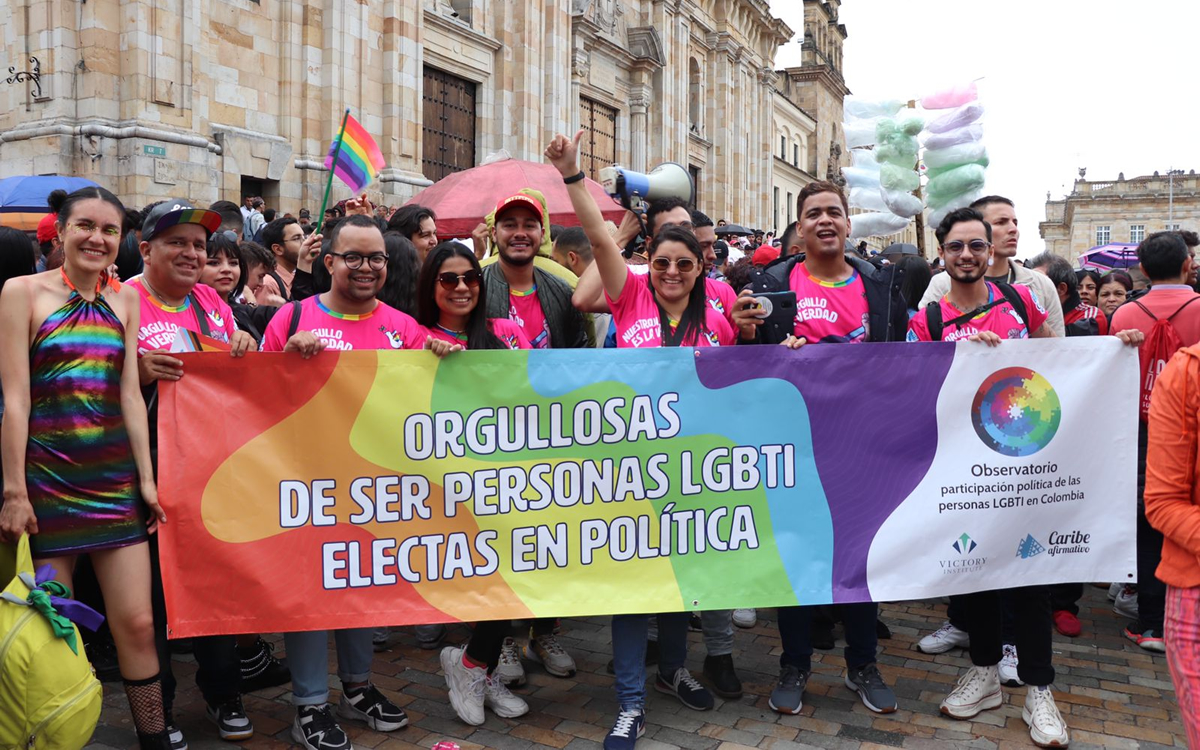
The U.N. Refugee Agency says upwards of three million Venezuelans are now in Colombia.
Then-Colombian President Iván Duque in February 2021 announced Venezuelan migrants who register with the country’s government will be legally recognized.
Former Bogotá Mayor Gustavo Petro, a former senator who was once a member of the M-19 guerrilla movement that disbanded in the 1990s, succeeded Duque as president on Aug. 7, 2022. Colombia and Venezuela restored diplomatic ties less than a month later.
Venezuela’s National Electoral Council on July 28 declared President Nicolás Maduro the winner of the country’s disputed presidential election. Tamara Adrián, the country’s first transgender congresswoman who ran in the presidential primary earlier this year, are among those who denounced voting irregularities.
WPLG, a South Florida television station on March 16, 2021, reported López sparked controversy after she told reporters there have been “some very violent acts from Venezuelans.”
“First they murder, and then they steal,” she said. “We need guarantees for Colombians.”
López made the comments after a Venezuelan migrant murdered a Colombian police officer in Bogotá.
“The problem is not migration from Venezuela,” López told the Blade in response to a question about Venezuela. “The problem is authoritarianism in Venezuela and you have to keep the focus on it.”
“The problem is what it is: It is not the migrants, it is in Maduro, it is in the dictatorship, it is in authoritarianism.”
More than 200,000 people died in the war between the Colombian government and the Revolutionary Armed Forces of Colombia that began in 1962.
Santos and the Revolutionary Armed Forces of Colombia Commander Rodrigo “Timochenko” Londoño on Sept 26, 2016, signed an LGBTQ-inclusive peace agreement. Colombian voters a few days later narrowly rejected it a referendum that took place against the backdrop of anti-LGBTQ+ rhetoric from religious and conservative groups.
Santos and Londoño less than two months later signed a second peace agreement, which also contains LGBTQ+-specific references.
López described herself as “a person totally committed to the peace process.” She added, however, she has “a bit of a bad taste in my mouth now that I look back.”
“The peace process with the FARC, which was to demobilize the FARC, period, certainly tried to have and had a gender focus, of course a diversity focus, a focus on human rights for all victims, and certainly (the) many LGBT victims who had been victims of FARC recruitment, abuse, stigmatization, etc.,” López told the Blade. “So, in some sense, or in many senses, having that gender and diversity perspective was a way of recognizing the victims of our community.”
She noted opponents lied about the LGBTQ+-specific provisions “to deceive and delegitimize the peace agreement.”
“It is not about making anything invisible, or even downplaying anything, but rather about being much more strategic in understanding that we do not want our flags and causes to be exposed in a way that ends up being a boomerang for our own community,” López added. “So, I say that is why it is a disappointment, because I think it is a lesson. At least for me, it made me think and it makes me think, and I have said it openly since then, that we have to be much more careful and much more, above all, strategic, in how we raise our flags so that they really do not only have symbolic, but real advances and so that in no case do they become a boomerang against ourselves.”
‘I know how you feel’
López during the interview praised the recent elections of Mexican President Claudia Sheinbaum, Uruguayan Vice President Beatriz Argimón, and other women in Latin America. She also expressed sympathy with LGBTQ+ Americans who are concerned about the incoming Trump-Vance administration.
“I know how you feel,” said López in her speech. “I’ve been there when we lost the peace referendum in 2016. I’ve been there when three candidates who represented independent, new alternatives in Colombia, and policies were killed by mafia groups in 1990. I’ve been there when a mafia cartel was able to fund and elect a president for all of us. I’ve been there when paramilitary groups were able to support and elect another president in Colombia.”
“I know how obscure and difficult and challenging and painful democratic times are, but we cannot (back) democracy only when we win,” she added. “It’s precisely when things are challenging, when we suffer defeats that are painful, that we need to attach to our democratic and humanistic values and principles.”
Chile
New face of Chilean politics includes LGBTQ+ rights agenda
Municipal and regional elections took place on Oct. 27
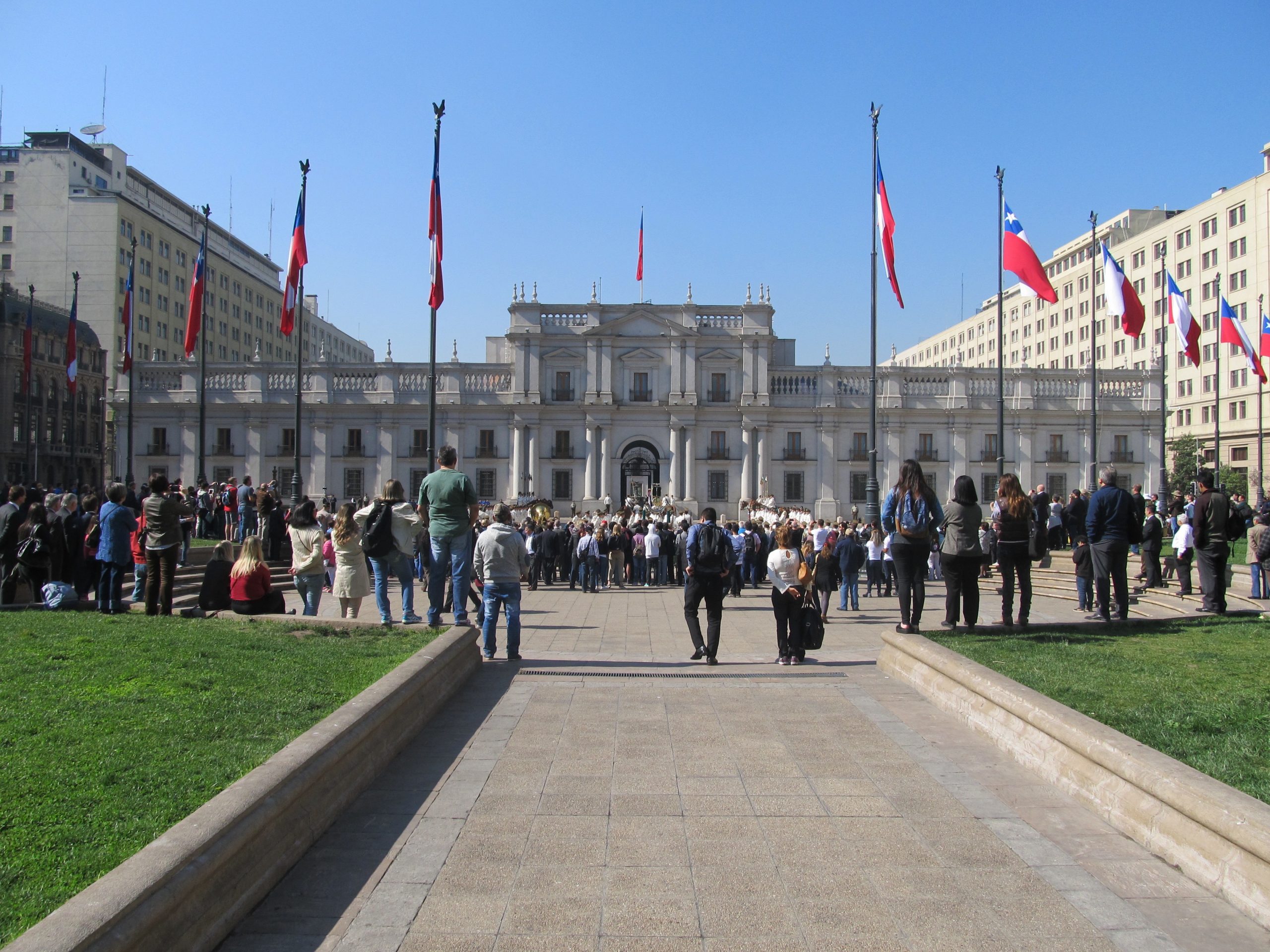
Chile’s municipal and regional elections that took place on Oct. 27 have brought with them a renewed focus on LGBTQ+ rights and diversity.
In a context where the center right has managed to stand out against the Republicans, political parties have incorporated into their platforms a commitment towards the inclusion of queer people. Some Chilean political scientists say the elections have shown a country inclined to vote for the opposition Chile Vamos coalition, even though the left governs Chile.
The ruling party, grouped in Contigo Chile Mejor, had a setback similar to what happened in the 2021 municipal and regional elections — it lost 39 communes that include Santiago, San Miguel, Ñuñoa, and Independencia.
Voters in Maipú, the country’s second most populous commune, re-elected Tomás Vodanovic from President Gabriel Boric’s Frente Amplio.
Frente Amplio also won in Viña del Mar, and other communes, and saw victory in others that include Valparaíso, where the Chilean Congress is located.
Openly LGBTQ+ candidates have emerged since 2012, and some of them have made history. These include Congresswoman Emilia Schneider, a Frente Amplio member who is transgender.
Several LGBTQ+ candidates have resonated with voters within the framework of these elections; not only highlighting their identity, but their commitment to the struggle for equal social rights.
Gloria Hutt, president of Evolución Política (Evópoli), a party that is part of the Chile Vamos coalition, stressed the importance of diversity in its agenda.
“Part of Evópoli’s agenda is inclusion and diversity, including the diversity of communities of different sexual identities. And in this election we had a dozen candidates who belong to sexual diversities, some of them won, others did not, but it is part of the agenda with which we are permanently working,” Hutt told the Washington Blade.
“We believe that it is also part of the freedom of people to deploy their life project without anything else interfering but their own identity and without prejudice preventing them from deploying that identity,” she added.
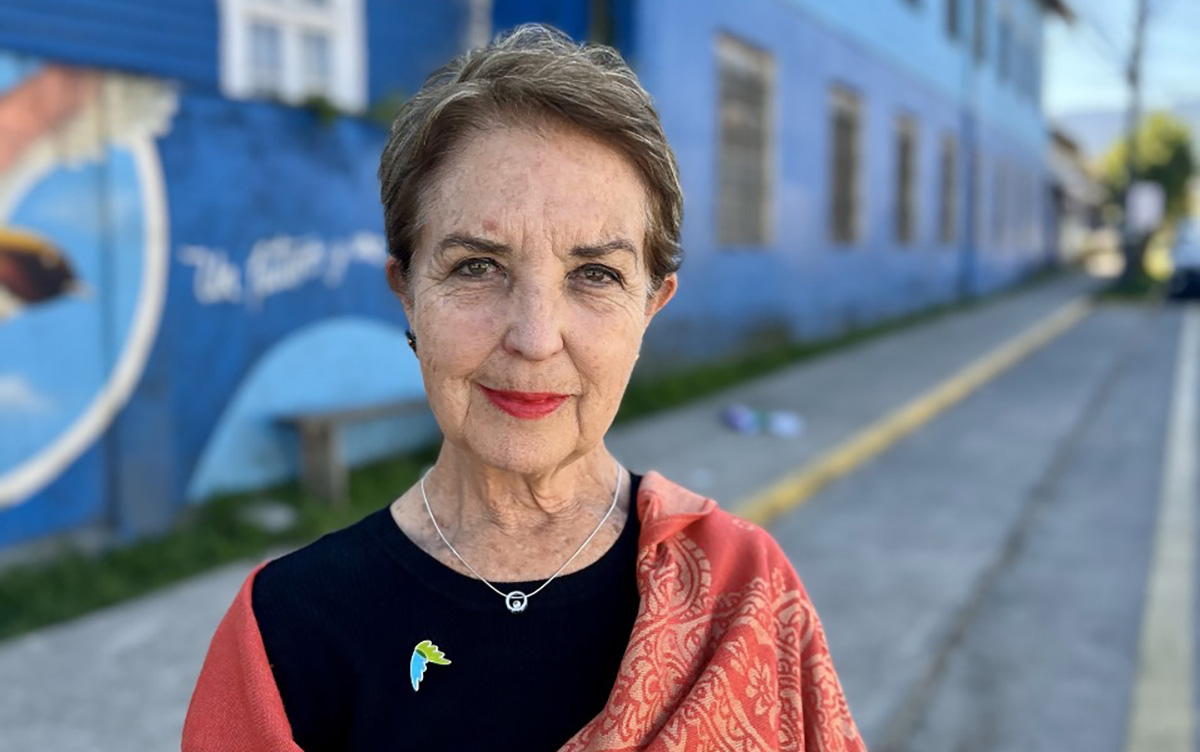
The reelection of figures, such as Viña del Mar Mayor Macarena Ripamonti, and Vodanovic’s success in Maipú reflect significant support for the progressive agenda.
“First of all I would like to emphasize that we saw an impeccable process where citizens were able to express their preferences,” Frente Amplio Secretary-General Andrés Couble told the Blade. “We believe that the results allow us to look to the future with optimism.”
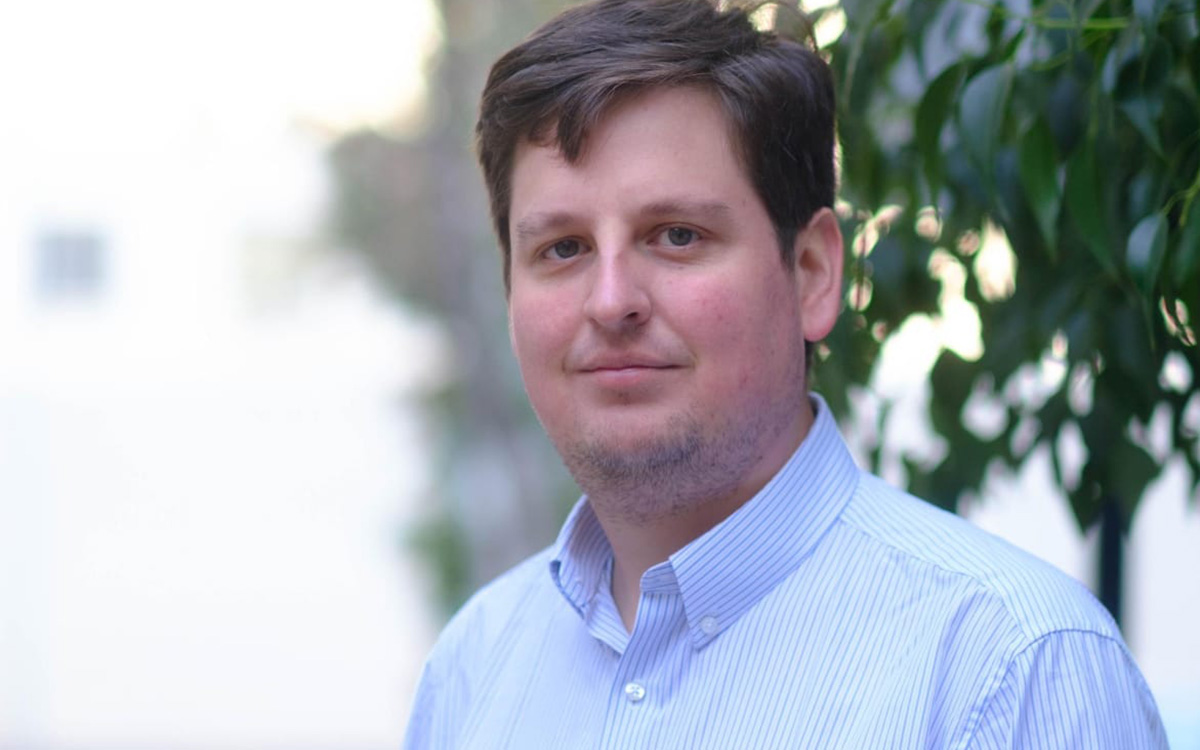
Couble highlighted the importance of LGBTQ+ candidacies in decision-making spaces.
“We think it is important to promote them and that they reach elected positions, because they allow us to bring the struggles for equal rights and respect and promotion of diversity to institutional spaces,” he said.
Couble at the same time highlighted the victory of Bladymir Muñoz, the Chilean councilman who received the most votes, as an example of the advance towards a more inclusive representation.
Muñoz is a Frente Amplio member. He received 41,669 votes in Maipú.
Peru
Victory Institute to honor Peruvian congresswoman at D.C. conference
Susel Paredes is first lesbian woman elected to country’s Congress
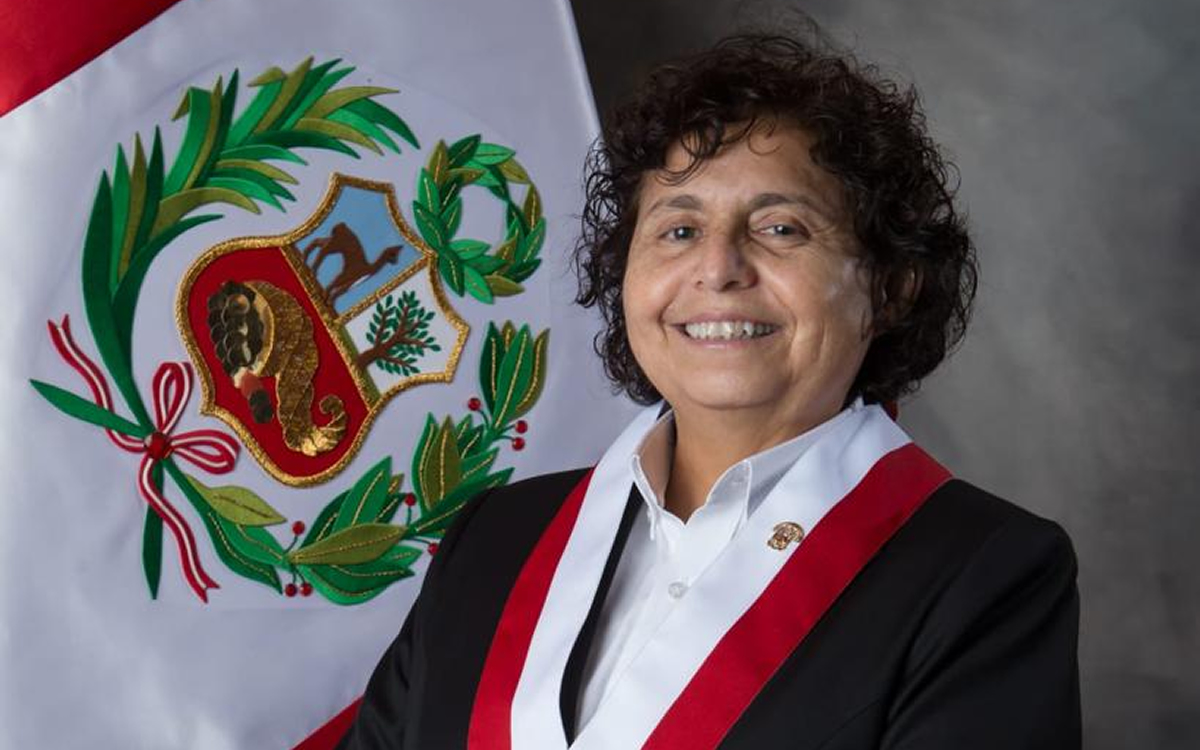
The LGBTQ+ Victory Institute will honor Peruvian Congresswoman Susel Paredes at its annual International LGBTQ+ Leaders Conference that will take place in D.C. in December.
Paredes, a long-time activist who in 2021 became the first lesbian woman elected to the South American country’s Congress, will receive the 2024 LGBTQ+ Victory Institute Global Trailblazer Award.
Paredes and her wife, Gracia Aljovín, married in Miami in 2016. The two women sued the Peruvian government after the country’s Constitutional Court denied their request to register their marriage.
“It is a true honor and a recognition that I deeply value,” said Paredes in a post to her X account after she learned the Victory Institute will honor her in D.C.
Victory Institute Executive Director Elliot Imse described Paredes as “a true champion through her activism and political engagement for decades.”
“Her historic election to the Congress of Peru is just one of many testaments to her status as a true trailblazer who is exceptionally deserving of this honor,” added Imse.
South America
Argentine government closes anti-discrimination agency
LGBTQ activists have sharply criticized President Javier Milei’s decision

Argentine President Javier Milei’s government has officially closed the National Institute Against Discrimination, Xenophobia and Racism (INADI).
INADI, created in 1995, was a key player in the promotion and protection of human rights in Argentina, offering support and resources to people affected by discrimination based on gender identity, sexual orientation, race, and other characteristics.
Officials announced INADI’s closure on Tuesday during a press conference. Milei’s government has presented the move as part of a reform to streamline public administration and restructure human rights policies.
“One of President Milei’s ideals is the reduction of the state and the elimination of everything that does not generate a benefit for Argentines,” presidential spokesman Manuel Adorni said in February when he announced INADI’s closure. “The decision was made to move forward in the dismantling of different institutes that effectively serve absolutely no purpose or are big boxes of politics or places to generate militant employment and the first of them is going to be INADI.”
The international community, including human rights organizations and LGBTQ activist groups, have expressed strong concern.
INADI has played a crucial role in the implementation of progressive laws in Argentina, such as the Gender Identity Law and marriage equality. Its dissolution raises questions about the continuity of these efforts.
“It is extremely serious, especially because we are in a moment in Argentina, not only because of the local context, but also the global context of a growth, an increase in anti-Semitism, racism, violence, xenophobia, LGBTphobia,” gay Congressman Esteban Paulón told the Washington Blade.
Paulón added Tuesday marked “three months since a triple femicide that occurred in the city of Buenos Aires with three lesbian women who were set on fire by a person who attacked them.”
“INADI was acting in many cases as an auxiliary of justice, with opinions that although they were not binding, they were a great support for the judicial instances,” he said.
Alba Rueda is a transgender woman who was Argentina’s Special Representative on Sexual Orientation and Gender Identity under former President Alberto Fernández’s government. Rueda resigned last November ahead of Milei’s inauguration.
Milei’s government earlier this year closed the Women, Gender and Diversity Ministry, under which Rueda worked.
“The closure of Women, Gender and Diversity Ministry, the closure of the special representation on sexual orientation and gender identity, the position of the Foreign Ministry’s position in the OAS (Organization of American States) to reaffirm conversion therapies, and INADI’s closure is one of the situations that comes to institutionally break public policies that protect the most excluded sectors of Argentina,” Rueda told the Blade.
“The closing of INADI is a very, very serious situation,” she added.
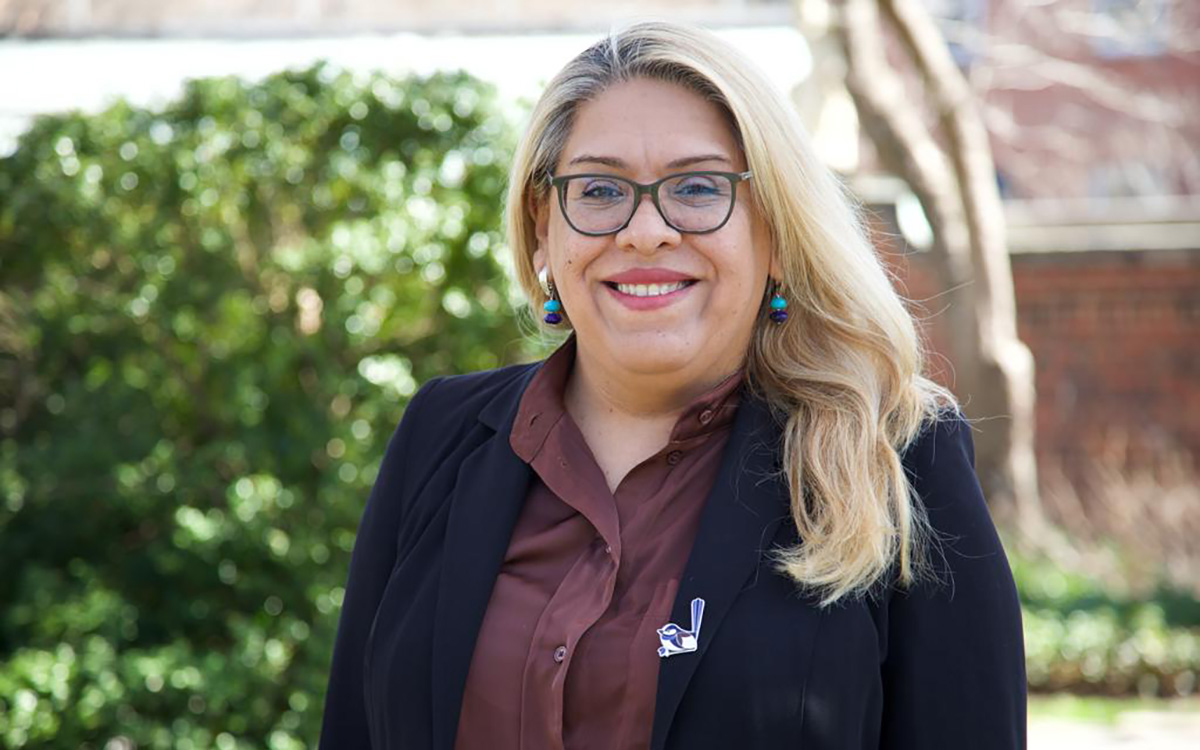
Activists are calling on the government to clarify how it will guarantee queer rights in the future and whether it will create alternative mechanisms to address discrimination complaints.
Santiaga D’Ambrosio, an LGBTQ activist who is a member of the country’s Socialist Workers’ Party, told the Blade “the closure of INADI is an adjustment that endorses discrimination, not only towards sexual diversity, but also towards so many other oppressed, violated or persecuted sectors, such as workers in struggle, migrants, people with disabilities.”
“INADI, in fact, has played a progressive role in the face of discrimination due to political and union persecution in different workers’ conflicts, against dismissals and for the recognition of union privileges in workplaces,” added D’Ambrosio.
D’Ambrosio, at the same time, said INADI’s closure deepens the economic and social crisis through which the Latin American country is going.
“Behind the closure of an agency, there are layoffs and uncertainty among its workers and their families,” said D’Ambrosio, noting layoffs have also taken place at Aerolíneas Argentinas, the country’s national airlines, and other companies. “Meanwhile, the enormous tax benefits for national and foreign businessmen remain untouched.”
D’Ambrosio added LGBTQ Argentines and other marginalized groups have to “self-organize independently from all governments who don’t really care about our lives.”
“We have to debate in our workplaces and study … how to conquer and strengthen our claims in the streets,” said D’Ambrosio.
South America
Nicolás Maduro declares victory in disputed Venezuelan presidential election
LGBTQ activists join opposition in denouncing irregularities

Venezuela’s National Electoral Council (CNE) on Sunday announced President Nicolás Maduro won a third term with 51.2 percent of the votes, compared to the 44.2 percent it said opposition leader Edmundo González received.
Fifty-nine percent of Venezuelans voted in the election that took place peacefully in most of the country, aside from reports of unrest in Táchira state that borders Colombia.
Authorities announced the results six hours after polling places closed, with CNE President Elvis Amoroso attributing the delay to a “terrorist” attack that affected data transmission. Maduro backed this explanation, suggesting a massive hacking of the electoral system took place.
The opposition, however, denounced irregularities and questioned the process’s transparency. Opposition leader María Corina Machado said she and her supporters have minutes that indicate González received 70 percent of the votes.
“There is a new president-elect and he is Edmundo González, and everybody knows it,” said Machado.
González entered into a political partnership with Machado, who Maduro’s government disqualified from holding public office. Machado backed González, a former diplomat.
“All regulations have been violated,” said González. “Our struggle continues.”
Maduro, for his part, called on his adversaries to abide by the results.
“This constitution must be respected,” said Maduro while speaking to supporters outside Miraflores Palace in Caracas, the Venezuelan capital, after the CSE declared him the winner. “The referee must be respected and no one must try to tarnish this beautiful day.”
In this regard, Tamara Adrián, the country’s first transgender congresswoman who ran in the presidential primary earlier this year, told the Washington Blade that “according to the information we have from the minutes that witnesses were able to obtain in approximately 40 percent of the polling stations, Edmundo González won with a percentage higher than 65 percent of the votes in all the states and in all the social sectors.”
The former congresswoman added “that is the result we had around 8 o’clock at night, when they started to issue instructions from the National Electoral Council for two things: One, to prohibit the entrance of Edmundo González’s witnesses in the vote counting room, something that continued during the whole night.”
“That is to say they never had any oversight from González in the computations,” Adrián told the Blade.
“And two, they prohibited the table chiefs from printing the minutes that the law says,” she added.
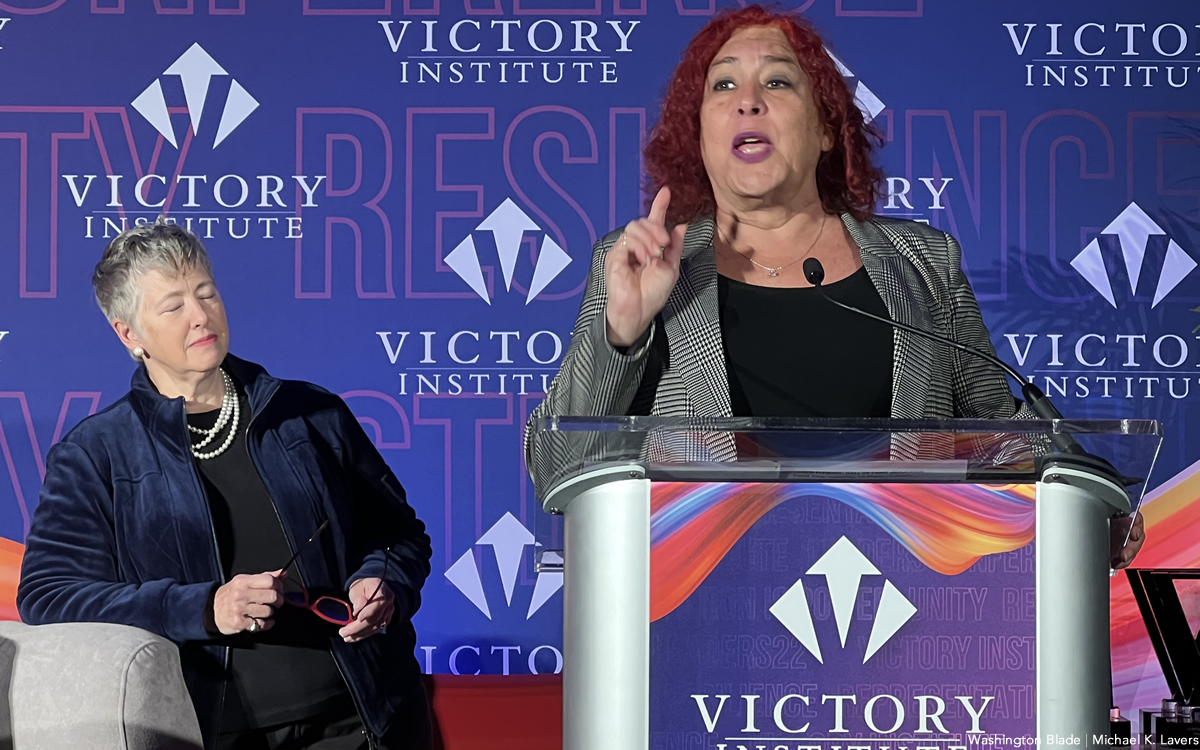
The elections took place amid widespread distrust of the CNE, whose board of directors includes figures linked to the ruling party.
The opposition questioned the electoral body’s impartiality and lack of recognized international observers. Reports indicate people in several areas of Caracas on Sunday used pots and pans to protest the CNE announcement.
LGBTQ activist Richelle Briceño told the Blade “the electoral participation in favor of change in the country was a majority and that will has been undoubtedly twisted by those who have dominated the electoral power and the armed forces of the nation.”
“They gave official results that do not adjust to reality and consequently are unverifiable,” said Briceño.
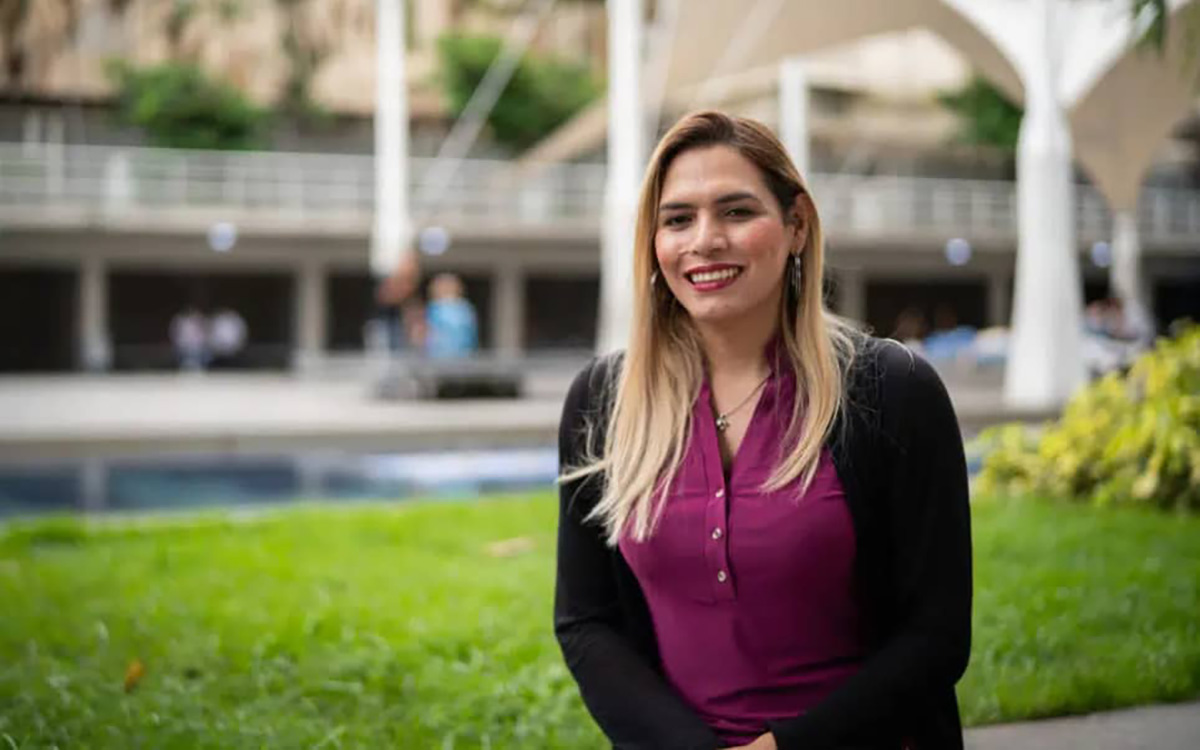
Chilean president, Biden-Harris administration question election results
Chilean President Gabriel Boric and other regional leaders expressed skepticism about the results.
American Secretary of State Antony Blinken also expressed concern about the count’s validity. Cuba and Honduras, on the other hand, congratulated Maduro after the CNE declared him the winner.
“The Maduro regime must understand that the results it publishes are hard to believe,” wrote Boric on his X account. “The international community and above all the Venezuelan people, including the millions of Venezuelans in exile, demand total transparency of the minutes and the process.”
“We are seriously concerned that the announced result does not reflect the will or the votes of the Venezuelan people,” said Blinken.
The situation in Venezuela remains uncertain, and the next few hours could define a new chapter in the country’s tumultuous political history.
“There is no certain formula for Maduro to leave the presidency while the other powers and institutions of the country are at his service,” said Briceño. “Venezuelans did what was in our hands, which was to express ourselves massively. Now we must continue to demand audited and verified results so that the truth is imposed before the world.”
“The support of the international community is fundamental for these purposes,” added Briceño.
South America
Report finds more Argentina businesses adopting LGBTQ-inclusive policies
Activists condemn new government’s rolling back of rights

The Human Rights Campaign Foundation and LGBT+ Public Policy Institute of Argentina last week released their third annual report on the inclusion of LGBTQ people in the country’s workplaces.
The Global Workplace Equity Program: Equidad AR evaluates major Argentine and multinational companies and policies for their LGBTQ employees.
The total number of participating companies in this year’s survey increased from 76 to 82, which reflects a growing commitment to creating LGBTQ-inclusive policies and practices in Argentine workplaces. The report also notes 224,649 queer employees, which is a 120 percent increase over last year.
The HRC Foundation’s AR Equity Program is based on the HRC Corporate Equity Index, the leading survey that assesses LGBTQ workplace in the U.S. Companies that lead the way in LGBTQ inclusion and equity earn the HRC Foundation’s “Best Places to Work LGBT+ 2024” designation.
Fifty-five of the 82 participating companies in Argentina earned this certification this year. They represent 26 different business sectors.
“As we’ve seen countless times, when organizations implement LGBT+ policies, everyone wins: Workers are better able to reach their full potential and employers reaffirm their commitment to treating all people with dignity and respect,” said RaShawn Hawkins, senior director of the HRC Foundation’s Workplace Equality Program. “We are very proud of our partners for the work they have done to advance LGBT+ equality in their workplaces and look forward to continuing to work with them as partners in this fight.”
The commitment to LGBTQ-inclusive policies and practicies is significant in a different way for the community in Argentina this year.
HRC indicated “recent public administrative changes focused on the LGBT+ community motivated the private sector to generate more opportunities to grow and develop its diverse workforce through business.”
President Javier Milei and his government have faced criticism over the closure of the National Institute against Discrimination and the Ministry of Women, Gender, and Diversity.
“The complex context that Argentina is experiencing of difficulties, hostility, and refusal of the national government to sustain many of the public policies that were carried out in recent years, puts the private sector at the center, which clearly has all the conditions to make an important contribution and become a decisive factor to support from another place different from the one we have been used to because the State has run away,” gay Congressman Esteban Paulón told the Washington Blade.
The congressman added “the private sector, and from the cooperation between the public sector and the private sector, can work and sustain many of the achievements that have been achieved in these years.” Paulón said they include implementation of a labor quota for transgender people that Milei’s government is no longer implementing, but “could be sustained” with a “firm commitment” from the private sector.
Onax Cirlini, HRC’s AR Equity implementing partner, said that “beyond the institutional efforts highlighted in this report, we see the dynamics generated by activism organized by employee resource groups (ERGs)/business resource groups (BRGs) or affinity groups.”
“This internal momentum, often led by people in the community itself, enhances institutional equality efforts by providing continuity and persistence,” said Cirlini.
Dolores Covacevich, another HRC AR Equity implementing partner, stressed the group recognizes “the importance of every role within companies and organizations as they work toward the integration of diversity, equity and inclusion policies, and the commitment to LGBT+ inclusion efforts.”
“We know that none of this work would be possible without inclusive leadership that promotes these processes,” said Covacevich.
HRC has worked with groups in Mexico, Chile, and Brazil to implement similar indexes in their respective countries.
-

 a&e features5 days ago
a&e features5 days agoMeet the chef who built his legacy in the LGBTQ+ community
-

 Opinions1 day ago
Opinions1 day agoWhy is it important for cities to become LGBTQ sanctuary cities?
-
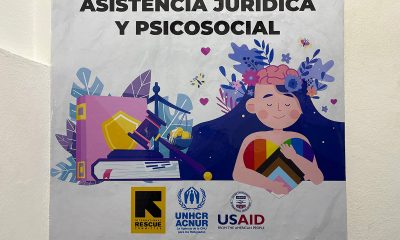
 Noticias en Español2 days ago
Noticias en Español2 days agoSuspensión de fondos de USAID golpea con fuerza a grupos LGBTQ+ en El Salvador
-
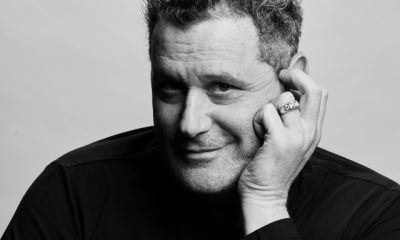
 a&e features1 day ago
a&e features1 day agoFashion icon Isaac Mizrahi brings performances to the West Coast
-

 Opinions22 hours ago
Opinions22 hours agoGay for pay: Andy Lee and the changing face of content creation
-

 a&e features1 hour ago
a&e features1 hour agoNo longer just a go-go dancer, Prince Joshua debuts ‘Crowned’ EP

